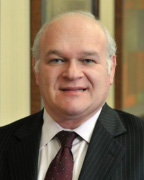Among the various requirements for a like-kind exchange is that the properties exchanged must be of a "like-kind". Fortunately, the concept of like-kind is extremely broad when applied to exchanges of real estate property. For example, unimproved real estate can be exchanged for improved real property, and an interest in real estate as a tenant-in-common can be exchanged for a fee interest in property. A condominium unit held for investment can be exchanged for a commercial building, vacant lot or any other real property, including timberland and certain perpetual mineral rights.
Also qualifying for like-kind exchange is an exchange of a leasehold interest in real estate with a term of 30 years or more for a fee interest in real estate. Optional renewal periods are included in determining whether a lease for a period of years is of a like-kind. If a leasehold has less than 30 years to run, the IRS has ruled that such a leasehold can qualify for a like-kind exchange if the replacement property is another leasehold interest of a term less than 30 years.
In a recent case, the Tax Court denied like-kind exchange treatment for exchange of a real property lease for fee interests. The case is noteworthy for the novel argument made by the taxpayer for like-kind treatment, which the Court rejected. The case involves the exchange of a leasehold interest in real property improved by a motel for two real property fee interests, one containing a motel, and the other an office building. The problem was that the remaining term of the leasehold was only 21 years and 4 months. The taxpayer provided an alternative argument for like-kind exchange treatment by claiming that the motel improvement in the transferred property was like-kind to the fee interests in the exchanged (replacement) properties.
The Court did not buy the argument. It noted that all of the leasehold improvement would ultimately belong to the lessor upon the expiration of the ground lease within less than 30 years. Therefore, the motel improvements were also a short-term real property interest that was not equivalent to the fee interests of the replacement properties. As a result, all the realized gain on the exchange had to be recognized in income.
The like-kind exchange is a valuable tax deferral technique which contains numerous requirements and structural formalities. Careful planning is a prerequisite for a successful exchange.
Our conclusions are based on the facts and assumptions as stated and on authorities that are subject to change.
To the extent this document constitutes tax advice subject to Circular 230, this tax advice was not intended or written to be used, and it cannot be used by any taxpayer, for the purpose of avoiding penalties that may be imposed on the taxpayer. (The foregoing legend has been affixed pursuant to U.S. Treasury Regulations governing tax practice).
Mike Rosenberg, CPA, MBA, is a tax partner at Margolin, Winer & Evens LLP, Garden City, N.Y.

Thanks for Reading!
You've read 1 of your 3 guest articles
Register and get instant unlimited access to all of our articles online.
Sign up is quick, easy, & FREE.
Subscription Options
Sign up is quick, easy, & FREE.
Already have an account? Login here







